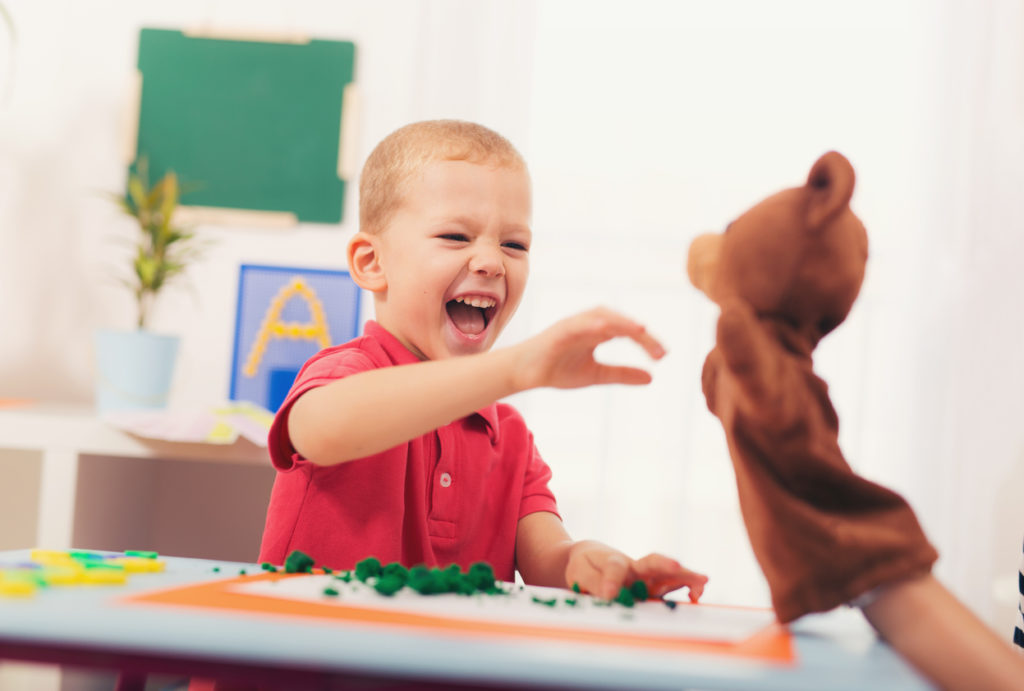What is Speech Therapy?

Although speech and language difficulties occur in all ages, Speech Therapy is a treatment that focuses on speech and/or language disorders. We look at the individual child and evaluate for language development, functional communication abilities, social pragmatics, articulation and oral motor skills. We determine what problems exist and develop the best solutions to treat these challenges. We utilize therapeutic and educational games and activities that are fun and motivating to your child. We incorporate articulation therapy and language intervention activities in order to help build skills while having fun. Speech and/or language disorders can be broken down into the following:
Speech Disorders encompass problems with articulation, fluency, and voice.
Articulation Difficulties occur when you are difficult to understand or say the sounds/words incorrectly. When children first learn to talk, they can be difficult to understand until with practice, they master the skill and build the motor connections. However, in some circumstances this mastery of skill is delayed or interrupted due to other problems/disorders.
Fluency Disorders include stuttering. For some people, this may only happen during specific activities and for others, it occurs across a number of home, school, or community activities. Unfortunately, some children limit their participation in social events because of this.
Voice Disorders are problems with volume, pitch or quality of your voice. Often children with sensory processing disorders have difficulty regulating their voice and when provided appropriate sensory strategies, they often slow the rate of speaking and even out the volume.
Language Disorders are broken down into two categories: Receptive language is what we understand and our ability to process what we hear. Expressive language is our ability to express what we want and need as well as using language appropriately in social situations. Difficulties include vocabulary, putting words together, or using speech in a socially appropriate manner. Difficulties can occur in receptive language, expressive language, or both.
All of our brains look the same, but each of our brain’s work differently. The use of movement and sensory based strategies is highly successful in tapping into different parts of the brain to clear the mind of confusion and chaos, build better attention and help the body and mind get ready to learn. Once our minds are cleared of chaos, we are in a ready place to utilize speech.
